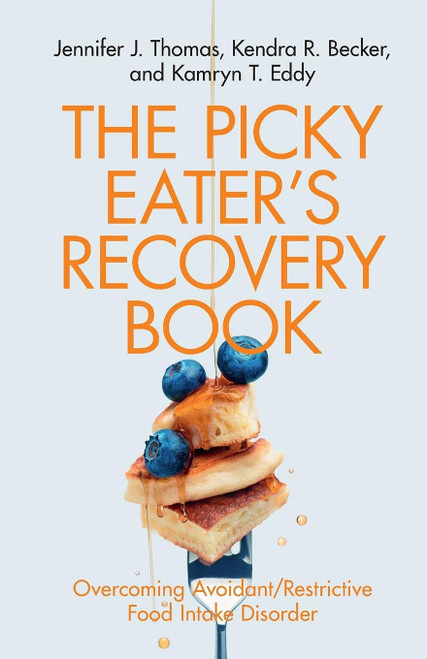When a restrictive eating disorder has had a destructive effect on your life or the life of someone you care about and you haven't been able to understand why it's so hard to overcome, Addicted to Energy Deficit is the book you need. Bringing in neuroscience and research evidence, as well as personal and professional experience, Helly Barnes provides an explanation for restrictive eating disorders that will resolve your unanswered questions and fit your experience. This includes: A credible explanation for restrictive eating disorders as a brain-based addiction to the state of energy deficit. The evolutionary, genetic and external factors that made you susceptible. The most effective methods to overcome the addictive pursuit of energy deficit. How to reprogram your brain through processes of deep learning and dopamine restoration. Why self-empowerment, support and connection are critical. The cause of extreme levels of hunger and why you need to respond to them. The importance of set point theory and fat overshoot. Why you are not as afraid of weight gain as you think. How to avoid relapse WHEN you find your free future. This informative and compassionate guide will give you a deeper understanding of yourself and the eating disorder. You will believe that you can overcome it and feel empowered to take the necessary steps to do so. Review by Eva Musby, author of 'Anorexia and other Eating Disorders: How to Help your Child Eat Well and be Well': Helly makes a strong case for tackling eating disorders as an addiction. She proposes that energy deficit (being underweight, eating insufficiently) leads to dopamine imbalances in those who are genetically vulnerable. And that restriction, as well as many behaviours and rituals associated with it, brings relief from the extreme fear and anxiety arising from abstinence. Using the addiction model, she explains tasks of recovery full nutrition, full weight recovery, abstaining from eating-disorder behaviours, bringing back normality, and so on. She offers explanations for the mental hunger a person may feel even when their stomach is full, for the need for overshoot, why the fear of becoming fat tends to disappear as people gain weight. I enjoyed reading this book. It's very well written, and there is loads I recognise from the treatment of teens, as well as some big differences. For instance Helly makes an excellent case for stopping all eating-disorder behaviours and rituals at once. She justifies this from experience as well as from the dopamine argument. Total abstinence from getting your 'fix' means that you eat all types of foods in unrestricted amounts, while resting and abstaining from those physical activities that are part of your addiction: the yoga, walks, even the housework. This will bring results and relief faster and more reliably. If, in spite of Helly Barnes' scientific references, you disagree with the eating-disorder-as-addiction-model you will still get loads out of this book. Models matter because they guide our actions as we make treatment decisions. What Helly proposes is infinitely more helpful than the common models that an eating disorder is all about control, or terrible parenting, or social media, or a desire to be thin, or that it's a monster that we parents can hate and shout at. There's plenty to think about as you read Helly Barnes' engaging book. If you're reading it as a parent, it will increase your awareness of your child's experience. If your child is an adult then Helly Barnes is someone to follow and keep learning from. And if you're an adult with an eating disorder, I believe this book will give you clarity and courage for you to work towards complete recovery.
Addicted to Energy Deficit: Your Neuroscience Based Guide to Restrictive Eating Disorders (Overcome an Addiction to Energy Deficit by Aiming for Overshoot ~ Restrictive Eating Disorders)
$26.94 - $30.39
- UPC:
- 9781739395506
- Maximum Purchase:
- 2 units
- Binding:
- Paperback
- Publication Date:
- 6/28/2023
- Author:
- Barnes, Helly
- Language:
- English: Published; English: Original Language; English
- Pages:
- 418











